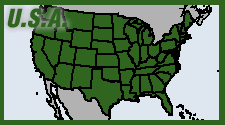 The country's leading advocacy group Americans for Safe Access (ASA) issued voter guides Oct. 26, highlighting several important races in the upcoming elections, including ballot initiatives establishing two new statewide medical marijuana laws in Arizona and South Dakota, and an expansion of Oregon's law to include licensed cannabis dispensaries. At the local level, voters in California and Colorado will be deciding on dozens of local medical marijuana initiatives, including banning distribution and imposing new taxes on patients. The race for California attorney general, however, may represent the greatest threat to patients this November. ASA strongly opposes AG candidate Steve Cooley, Los Angeles District Attorney and a longtime adversary of the state's medical marijuana laws.
The country's leading advocacy group Americans for Safe Access (ASA) issued voter guides Oct. 26, highlighting several important races in the upcoming elections, including ballot initiatives establishing two new statewide medical marijuana laws in Arizona and South Dakota, and an expansion of Oregon's law to include licensed cannabis dispensaries. At the local level, voters in California and Colorado will be deciding on dozens of local medical marijuana initiatives, including banning distribution and imposing new taxes on patients. The race for California attorney general, however, may represent the greatest threat to patients this November. ASA strongly opposes AG candidate Steve Cooley, Los Angeles District Attorney and a longtime adversary of the state's medical marijuana laws.
"There are more reasons and ways for patients and their supporters to get involved in this year's election than ever before," said ASA executive director Steph Sherer. "This is not the election to sit out. Not only is there an opportunity to establish new, much-needed medical marijuana laws this November, but there is also a need to push back against literally dozens of local measures that prevent access and attempt, through taxation, to balance the budgets of cash-strapped economies on the backs of patients."
Proposition 203 in Arizona and Measure 13 in South Dakota would both enact new statewide medical marijuana laws. Both laws create criminal and civil protections for patients, a standard among state medical marijuana laws, but Arizona's initiative would also locally regulate and license nonprofit dispensaries. Measure 74 in Oregon creates a system of state-regulated, nonprofit dispensaries for a medical marijuana program that now serves approximately 40,000 patients. Measure 74 will still allow patients to cultivate their own medicine, but it will provide the option of a safe and affordable supply that will be self-financing, create many new jobs, and generate as much as $20 million in annual revenue for Oregon's cash-strapped treasury.
There are at least 14 local medical marijuana-related ballot measures in California, where voters will decide whether to impose new local taxes on medical marijuana distribution and cultivation in at least 10 different cities, including Albany, Berkeley, La Puente, Long Beach, Oakland, Rancho Cordova, Richmond, Sacramento, San Jose, and Stockton. The new taxes, which are strongly opposed by patient advocates, range from 2.5% in Berkeley and Stockton to 10% in San Jose and La Puente. Voters in Santa Barbara and Morro Bay will decide whether to permanently ban local dispensaries in ballot measures strongly opposed by patient advocates.
Colorado has a staggering list of 52 different local medical marijuana-related initiatives on the November ballot, most of which ask the question whether particular localities should ban cultivation and distribution. There are also a handful of local taxation measures similar to those in California. As described in the ASA Colorado Voter's Guide, bans against cultivation, distribution, and food-based medicine, "are unnecessary and will have a harmful affect on patient access to medical cannabis."
Other races across the country affecting medical marijuana patients include the offices of governor of California and New Mexico, attorney general of Michigan, and more than 40 members of Congress from 18 states. Patient advocates strongly support particular candidates in some races, such as Diane Denish for governor of New Mexico, but also vocally oppose candidates in other races, such as medical marijuana adversaries Steve Cooley and Bill Schuette running for attorneys general of California and Michigan, respectively, as well as Meg Whitman running for governor of California.
Amidst all of the controversy surrounding California's Proposition 19, aimed at legalizing cannabis, medical use advocates have been split on whether the measure would help or hinder the lives of patients. ASA has taken a neutral stance on Proposition 19, but believes much of the concern expressed against the measure so far has been unfounded. "If Prop 19 can bring down the price of medical marijuana without diminishing its quality, patients will certainly benefit," said ASA spokesperson Kris Hermes. "However, it's unclear what impact Prop 19 will have on local medical marijuana distribution, whether through court rulings or aggressive enforcement actions that fail to discern between medical and non-medical use." (Americans for Safe Access, July 21)







Recent comments
2 weeks 4 days ago
6 weeks 5 days ago
7 weeks 5 days ago
7 weeks 5 days ago
28 weeks 6 days ago
33 weeks 9 hours ago
34 weeks 4 days ago
34 weeks 5 days ago
47 weeks 12 hours ago
1 year 4 days ago